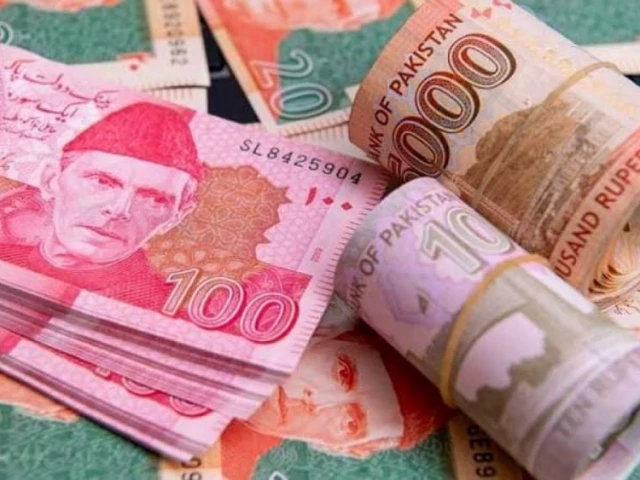Pressure on exchange rate worries EAC
Members say rupee overvalued by 4%

The Economic Advisory Council (EAC) on Wednesday raised concerns over the pressure building upon the exchange rate that was also reflected in the central bank's data, urging Prime Minister Shehbaz Sharif to look into the matter to keep exports competitive.
During a meeting, some members of the nine-member council pointed towards the Real Effective Exchange Rate (REER) – a measure of the value of a currency against average basket price of foreign currencies – which increased to 104.05 in January 2025.
According to officials, this indicated that the rupee was overvalued by 4%, as REER 100 was considered that the rupee had been trading at a fair market value and any movement above or below this threshold meant that the price was not reflecting the true economic conditions.
However, Deputy Prime Minister and Foreign Minister Ishaq Dar differs with REER and believes that the rupee was undervalued by at least 15%. At present, the rupee is trading above Rs279 to a dollar for the past few days and remains stable for a longer period.
The EAC, which is headed by the prime minister, includes Jehangir Khan Tareen, Saqib Shirazi, Shehzad Saleem, Musaddiq Zulkarnain, Dr Ejaz Nabi, Asif Peer, Ziad Bashir, and Salman Ahmed as members.
The officials said that the EAC members, some of them exporters, were of the view that due to overvaluation of the rupee their exports were becoming uncompetitive, adding that Finance Minister Muhammad Aurangzeb assured the EAC that he would take up the matter with the State Bank of Pakistan (SBP) – the regulator of the exchange rate regime.
Some of the EAC members also appeared protecting their own business interests during a meeting, raising certain micro-levels issues, which should not have been brought up for the discussion, observed a participant of the meeting.
The EAC members highlighted that the foreign exchange reserves had also started declining and dipped by $1 billion to $11 billion by the end of last week.
Pakistan's foreign exchange reserves remain low despite the IMF programme, as there are no major increases in the fresh foreign inflows. The central bank has been maintaining the reserves by purchasing dollars from the market. The purchases amounted to $9 billion in the last calendar year.
However, there was limited window available for the purchases in January after the country registered the $420 million current account deficit. The SBP is purchasing dollars by retaining a portion of the export proceedings and the foreign remittances.
The central bank claims that the restrictions on imports have been removed and allowed duty-free import of cotton to bridge the gap between demand and domestic supply. There is also permission for duty-free import of textiles machinery and spare parts; and raw materials not being produced locally.
Overall, the current account posted a surplus of $700 million during the first seven months of this fiscal year on the back of $19.2 billion worth of exports. Some of the EAC members also recommended importing raw sugar for the purpose of re-exporting it after refining the commodity.
A member, having stakes in the exports business, recommended that the government should not impose any sales tax on the imported raw materials. The exporters are misusing the facility after the government imposed sales tax on the Export Facilitation Scheme.
The prime minister also highlighted efforts to make local industries capable of competing in the international markets with their exports, according to a press statement. The prime minister pointed out that consultations were ongoing regarding the regulation of digital currencies.
The EAC members also opined that the investment would boost only after the overall investment environment was improved and the local investors also started investing in, according to the participants of the meeting.
An official handout by the Prime Minister's Office stated that the EAC members reposed their full confidence in the government's economic policies and presented key suggestions aimed at further strengthening Pakistan's economic growth.
It added that Shehbaz instructed the relevant authorities to collaborate with the council members to form a comprehensive action plan based on these suggestions. He emphasised that economic stability was not the result of an individual effort but the collective efforts of the entire team.
The prime minister also emphasised the need for using the regional trade potential. He said that industry, agriculture, information technology development, job creation, and increasing exports were among the government's top priorities.
The prime minister said that efforts were afoot to improve telecommunication services and provide internet access to the remote areas, which would help boost the number of freelancers and information technology (IT) exports.



















COMMENTS
Comments are moderated and generally will be posted if they are on-topic and not abusive.
For more information, please see our Comments FAQ